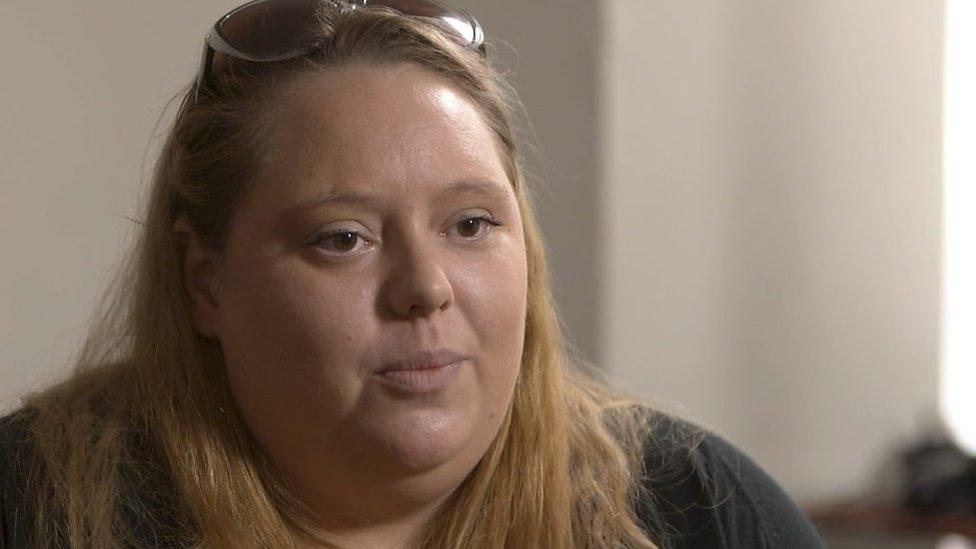EastEnders star Barbara Windsor diagnosed with Alzheimer's
- Published
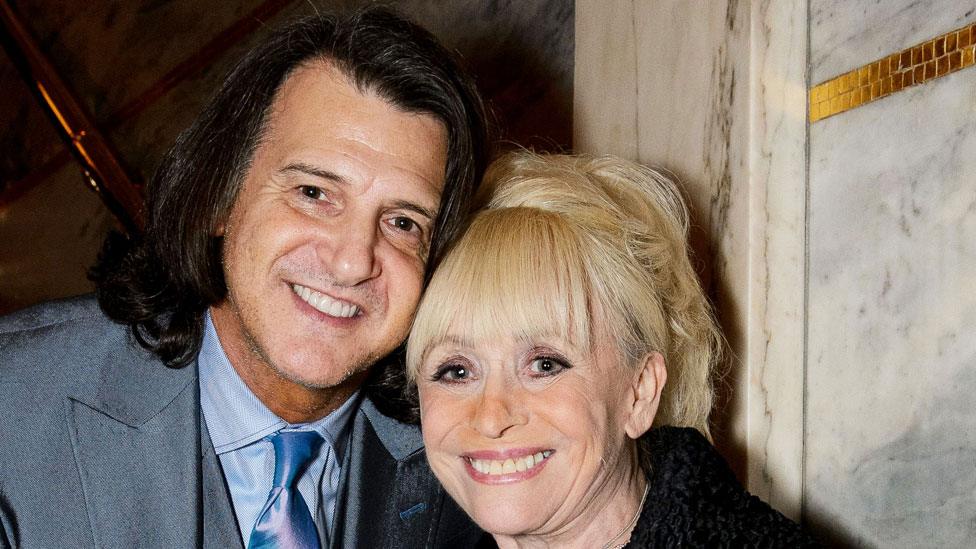
Dame Barbara Windsor with her husband Scott Mitchell pictured together in December 2017
The actress Dame Barbara Windsor has been diagnosed with Alzheimer's, her husband has said.
Scott Mitchell, 55, confirmed to the BBC that his 80-year-old wife had been given the news in April 2014.
He said the EastEnders star had been taking medication to manage her condition but that symptoms had worsened in recent weeks.
The veteran of film and TV was made an MBE in 2000 and a dame in 2015 for services to drama.
In an interview with The Sun, external, Mr Mitchell said: "Since her 80th birthday last August, a definite continual confusion has set in, so it's becoming a lot more difficult for us to hide.
"I'm doing this because I want us to be able to go out and, if something isn't quite right, it will be OK because people will now know that she has Alzheimer's and will accept it for what it is."
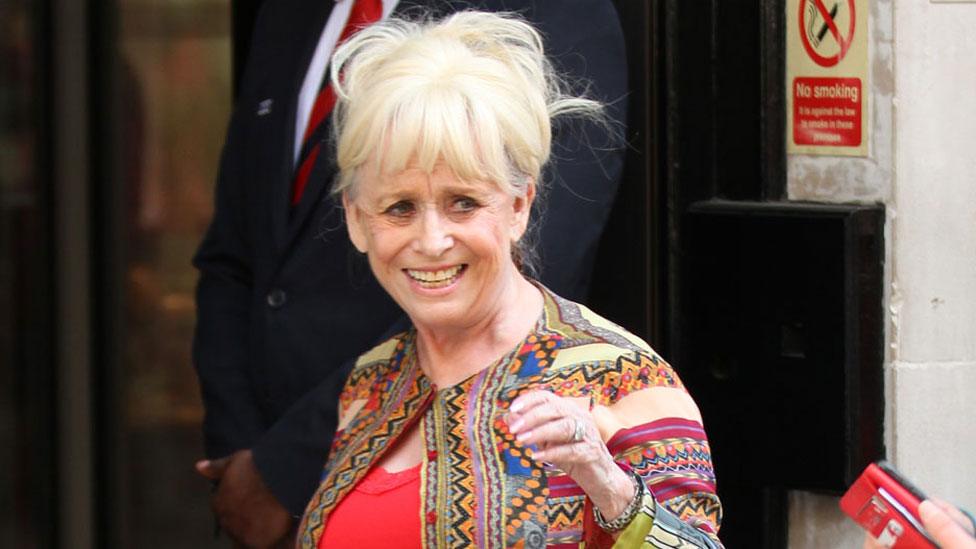
Dame Barbara, pictured in April 2018, was diagnosed four years ago
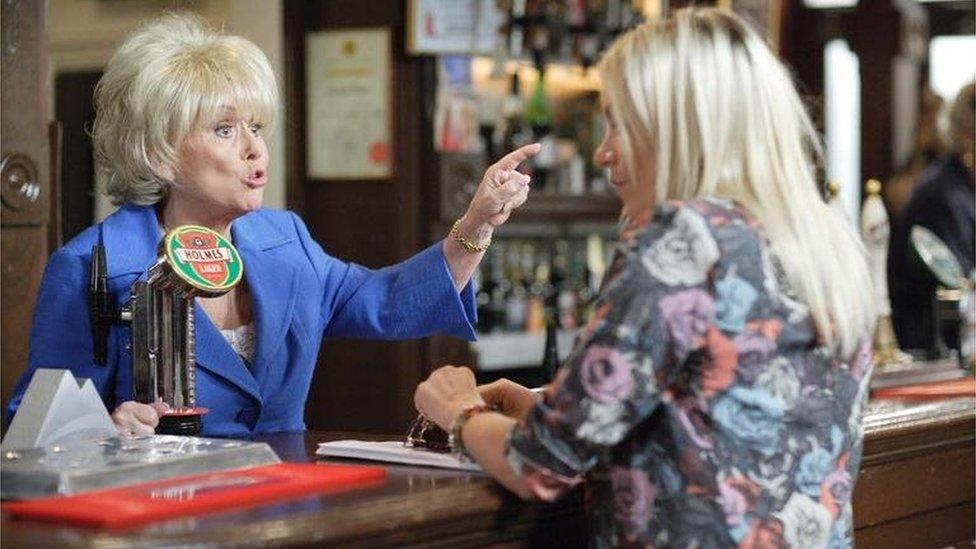
Dame Barbara played Peggy Mitchell in EastEnders - a character who became known for her cry "Get outta my pub!"
"I hope speaking out will help other families dealing with loved ones who have this cruel disease. Secondly, I want the public to know because they are naturally very drawn to Barbara and she loves talking to them," he added.
Mr Mitchell said his wife was aware that he was making her diagnosis public.
"She often asks me, 'Do the public know that I'm not well?' And she asked me again this morning," he said.
"I said they didn't yet, but we were going to have to let them know because so many people are talking now. But if she forgets that she gave me her blessing, well, I'll just have to deal with that."
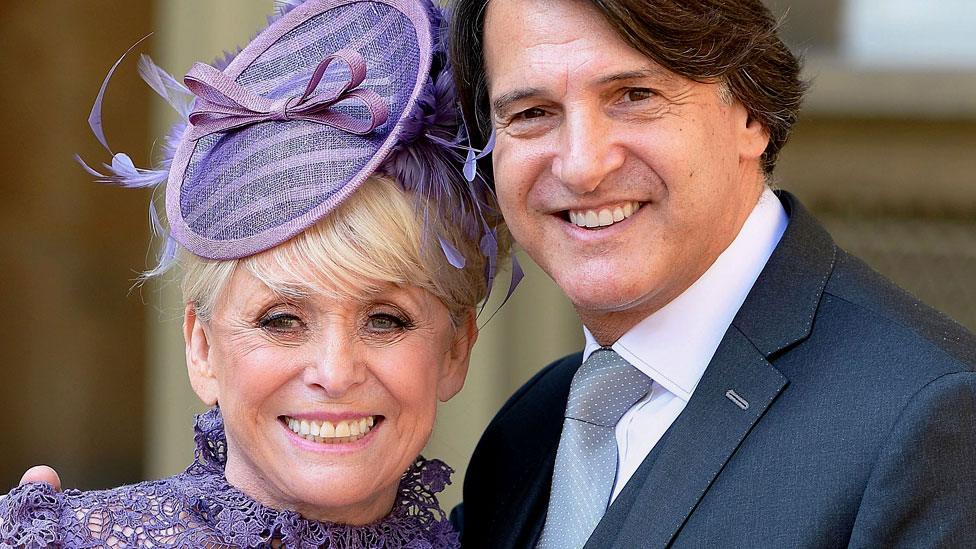
Dame Barbara received her honour at Buckingham Palace in 2016
Ross Kemp, who played Dame Barbara's on-screen son Grant Mitchell in EastEnders, spoke of his love for the actress and her husband on Twitter.
Allow X content?
This article contains content provided by X. We ask for your permission before anything is loaded, as they may be using cookies and other technologies. You may want to read X’s cookie policy, external and privacy policy, external before accepting. To view this content choose ‘accept and continue’.
Kemp said he hoped that talking about the condition openly "will make it easier for others" to do so.
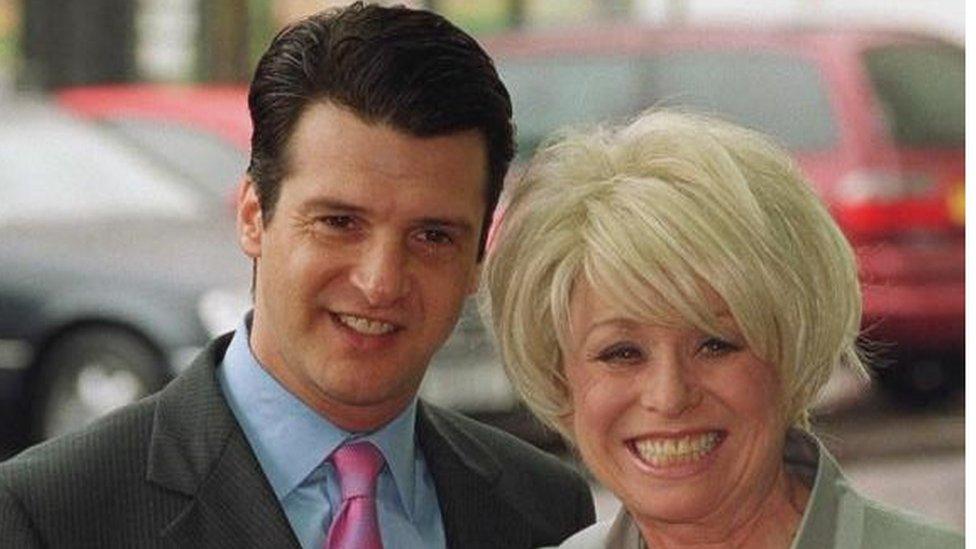
Happy times: The couple are pictured in 2000
Mr Mitchell said he noticed his wife found it difficult to learn her lines in 2009, just before she left EastEnders for the first time, but they didn't think anything of it.
By early 2012, she had started repeating certain sentences and stories, he said.
Following a series of mental agility tests and a brain scan, he said, she was diagnosed.
He recalls that on hearing the news, his wife mouthed the words "I'm so sorry" to her husband.
"I squeezed her hand back and said, 'Don't worry, we'll be OK'", he told the newspaper.
'Wonderful and brave'
Carey Mulligan, who is an ambassador for the Alzheimer's Society and spoke about the disease at the UN last year, praised Dame Barbara's family's decision.
Speaking at the Cannes film festival, she told the BBC: "I think it's really wonderful and brave for the family and Dame Barbara Windsor to come out publicly and speak about Alzheimer's.
"It's so important as a society that we become more aware of dementia and we become more accepting as a community.
"For so many years there's been such a misunderstanding about what it is - that it's not a natural part of ageing, that it is a disease of the brain."
Mulligan became a spokesperson for the organisation because her late grandmother had Alzheimer's for the last 16 years of her life.
She added that education was important "so society can become more dementia-friendly", saying: "Whenever a public figure speaks out, it's a great advantage for everyone."
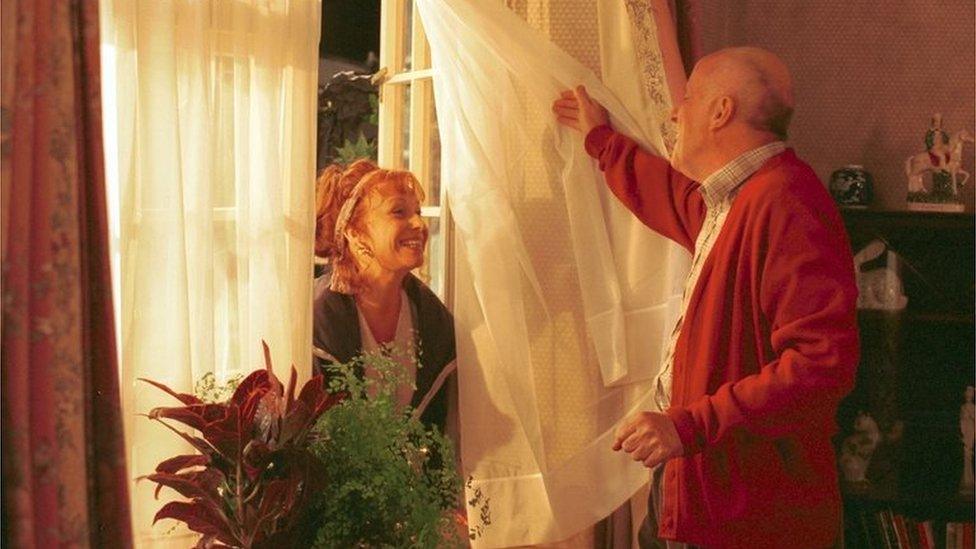
The actress appeared in sitcoms including One Foot in the Grave
Dame Barbara appeared in nine Carry On films and played the pub landlord Peggy Mitchell in EastEnders.
The actress first appeared on stage at the age of 13 in a pantomime and was soon performing in the West End musical Love From Judy.
In 1964 she worked on her first Carry On film - Carry on Spying.
She was also in sitcoms including Dad's Army and One Foot in the Grave.
In 2009 she was given a Lifetime Achievement Award at The British Soap Awards.
Tim Parry, director at Alzheimer's Research UK, said: "We are saddened to hear of Dame Barbara's diagnosis with Alzheimer's. It's to be congratulated that Scott is speaking out to encourage other affected individuals and families to do the same when it's right for them.
"It's important to bring the disease out into the open as a crucial step towards us tackling it. Alzheimer's is a physical disease, in the same way that cancer or heart disease are, and there shouldn't be stigma in being open about it."
He described Dame Barbara as a "much-loved figure on our screens and in public life", adding: "Our hearts go out to her and her family. We hope she is able to maintain and enjoy her quality of life for as long as possible."

What is Alzheimer's disease?

Alzheimer's disease brain (left) compared to normal (right)
Alzheimer's disease is the most common cause of dementia - a syndrome associated with an ongoing decline of brain functioning.
There are currently around 850,000 people in the UK with dementia.
Symptoms of Alzheimer's disease include memory loss, confusion and problems with speech, but the disease can start years before patients display such symptoms.
None of the treatments currently available can stop the disease, however they can help to temporarily reduce the symptoms.
Sources: NHS, external, Alzheimer's Society, external
- Published23 March 2018

- Published22 March 2018
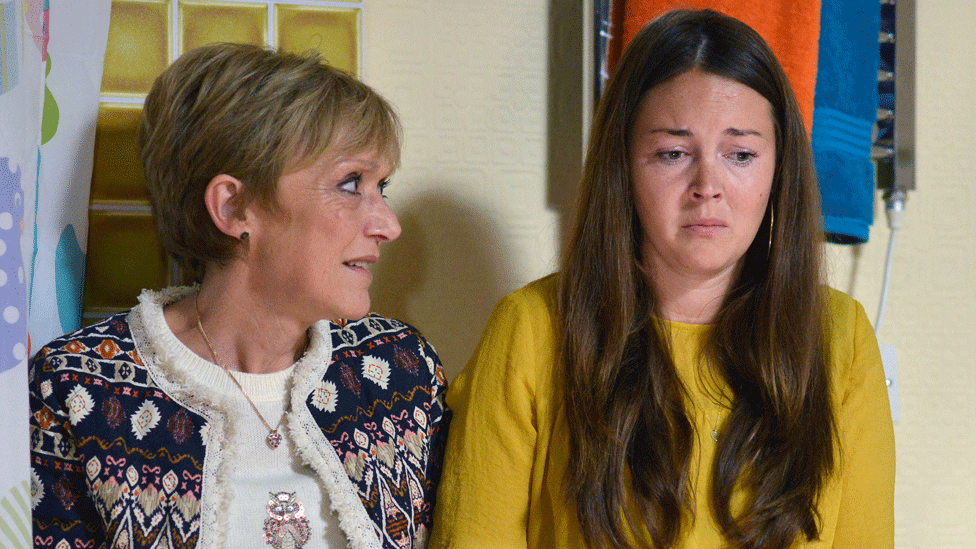
- Published4 September 2017
